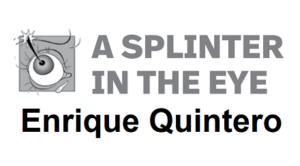 Answering this question calls for some clarification. Whose future are we talking about? What do we mean by having a future? And finally, is this question relevant?
Answering this question calls for some clarification. Whose future are we talking about? What do we mean by having a future? And finally, is this question relevant?
Whose future anyway?
I am talking about your future and mine. And the future of my granddaughters, Sylvia and Stella, whose combined age is slightly more than nine years. I am talking about the future of humanity as a species, which paradoxically includes members of social classes for whom I have little empathy and who bear direct responsibility for the current situation of the planet.
I refer to those who insist that the ultimate expression of humanity is the freedom to accumulate wealth by whatever means are available. They assert that efforts to constrain that process, particularly by governments, are to be actively resisted in the name of individual liberty.
Our current record shows that over the past decades, a small number of people have accumulated wealth at a scale never before seen in human history. This wealth is also more concentrated, belonging to roughly one percent of the world’s population. At the same time, the natural sciences tell us that we cannot play this economic game forever, that putting profits over everything is like having four or even five bullets in the chamber, playing Russian Roulette with the planet. The game is clearly profitable for a few, but as it’s being played, it also means the end of our species. Of our future.
The demise of the world as possibility
This is not the first time that the end of the world has been announced. For example, within the Judeo-Christian tradition, we find a large platoon of apocalyptic enthusiasts and geography aficionados who foretold not only the date of the final cataclysm, but also its precise location: the Valley of Armageddon.
This menacing tradition endured through the Middle Ages with figures like Nostradamus. It persists in the present through televangelism figures like the famous media mogul and religious broadcaster Pat Robertson, who in 1980 declared: “I guarantee you by the end of 1982 there is going to be a judgment of the world.”
Needless to say, these oracles of doom failed not because of lack of conviction or fervor, but because their clairvoyance was based on religious or moral systems of thought, rather than scientific evidence. In other words, the prophecies we’ve heard before were, from a scientific perspective, more like unsupported speculation. What we’re hearing today is a scientific prognosis, which is understood as the likely course of a fatidic event based on material evidence.
Science as predictor
When we look at the future through the lens of the latest scientific findings of the IPCC (Intergovernmental Panel on Climate Change), we find these key points, summarized by Katharine Hayhoe, a scientist with The National Conservancy:
Although worldwide there has been some progress on the commitments to reduce carbon emissions, this is not enough to keep global warming to 1.5 C above pre-industrial levels. 1.5 C is a threshold scientists believe is necessary to avoid the worst impacts of climate change.
I don’t know what kind of meaning my granddaughters will construct, or how they will articulate their world — that is for them to decide.
If warming of the global temperature continues at the present rate, humans born in 2020 will experience by the year 2060 to 2080 extreme temperatures with substantial losses “to almost every aspect of human life on this planet”.
Global Warming Levels (GWL) will cause extreme changes in climate: precipitation, soil moisture (desertification of the earth), and extremely hot temperature changes.
The impact of the above changes is very serious: they will affect our health, our food sources, access to water and more.
Animal species and seagrasses, as well as ocean species, will be at great risk of becoming extinct (e.g. thousands of species of birds, mammals, reptiles, amphibians, marine fish, krill, corals).
In conclusion, we are not doing enough to avoid some of the dangers mentioned above, let alone achieve the targets of the Paris Agreement.
(Readers can access the IPCC report and figures at http://www.ipcc.ch/report/ar6/syr/figures/
What does it mean to have a future?
It means that the act of living as a species can be thought of as an experience or as an event that is likely to occur. Taking into consideration the latest indicators of the IPCC report, and the historical incompatibility between the interests of capital around the world and its pernicious mode of interacting with nature, the future appears problematic and elusive particularly for younger generations.
Under these new existential conditions, it is not an exaggeration to state that daily acts considered mundane and essential in the ways we articulate and experience the world acquire a new symbolism, a mix of nostalgia and premonition. In other words, simple acts of living can no longer be taken for granted. We no longer possess the certainty about the future that was once taken for granted. This applies to nonchalant acts like simply observing the world, as well as to the act of loving, to having close and lasting ties with other human beings, to the act of working, or doing politics, or interacting with nature and society.
It applies most of all to the act of thinking about the future as a possibility that still harbors the lives of our descendants. Life has always been contingent, and we know that five billion years from now the expansion of the sun will eventually engulf the Earth. The difference in this case is that we have managed to make the future more uncertain and potentially more immediate than ever.
It seems that all humanity is hosted in the Grand Hotel Abyss, the last global boarding house built by capitalism.
Is the question about the future relevant?
Not for everybody. It depends on the position you adopt regarding science, economics, human subjectivity and human agency. The responses range from those who simply deny the scientific evidence about climate change and conduct their lives in a “business as usual” mode.
There are also those who, in an effort to disinfect capitalism, have given it a “coat of green” and want to attribute to this economic system qualities until now unknown regarding both the treatment of most humans and nature. This green-washed position rests on two obfuscations: first, it forgets the causal role of capitalism in the environmental crisis. Second, it ignores the central logic of the capitalist system, with its continuous appetite for natural resources and profit above all other considerations such as sustainability or the metabolism between humans and nature.
There are also those who experience despair, and are torn between on one hand acknowledging catastrophe as a possibility and doing something about it, and on the other hand embracing hedonism and not caring much about the future by remaining in the present.
To construct meaning and have purpose
Finally, there are those who understand that the universe has no objective or predetermined meaning, but would prefer to see the future as an event likely to occur. This in turn is a precondition for humans to continue having purpose and constructing meaning during their lifetime.
I don’t know what kind of meaning my granddaughters will construct, or how they will articulate their world — that is for them to decide. It is our responsibility to make it possible for the new generations all around the world to derive meaning out of this beautiful universe.
In Marx’s words: “Even an entire society, a nation, or all simultaneously existing societies taken together, are not the owners of the earth. They are simply its possessors, its beneficiaries, and have to bequeath it in an improved state to succeeding generations, as boni patres familias” [good heads of the household].
Enrique Quintero serves on the WIP Publishing Committee.

Be First to Comment